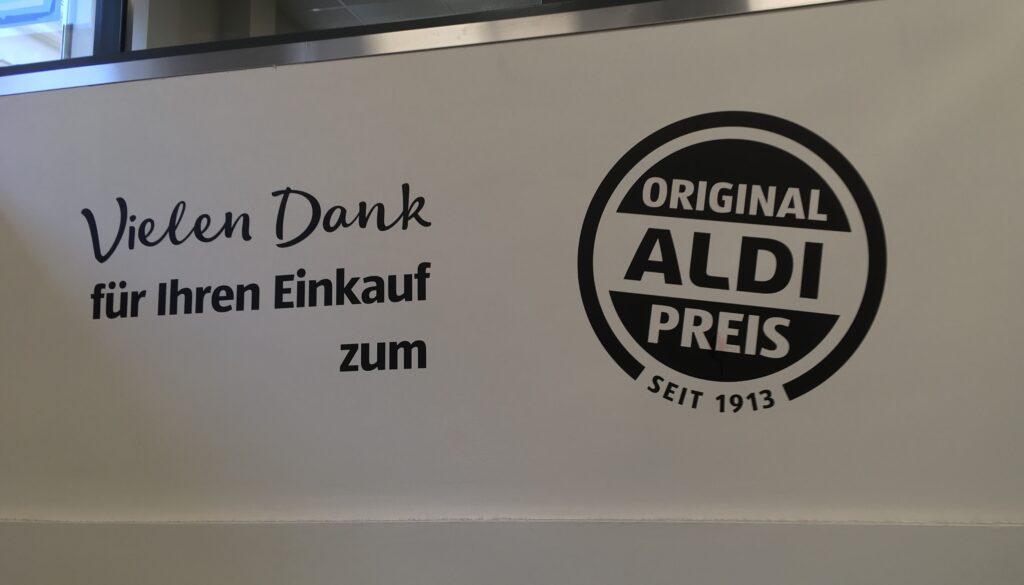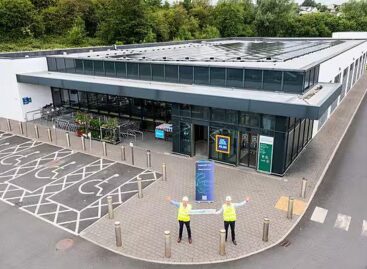Good-bye Aldi Price – A eulogy for EDLP price leadership
National price leadership is an overrated concept in 2024. In the wake of record-high inflation rates shopper research all across Europe suggests that retailers have to lead on being cheap to be successful. As a consequence, not a week passes by without another grocery leaflet shouting out the claim to ‘best prices’ in the market. Basket comparisons with other retailers have become the norm rather than an exception. Especially discounters now demonstrate the strength of their business model. However, Aldi Süd in the United Kingdom is an example, how a focus on untargeted ‘low’ can lose appeal with the customer.

Latest Kantar grocery market share figures for Great Britain (GB) are out, and they are surprising. According to the market researchers, over the past 12 weeks Aldi, the price leader, has been growing slower than any other of the large British grocers. Market share is down 0.3 percentage points from 10.1 three months ago to 9.8 percent. Channel competitor Lidl, in contrast, was able to increase its share in the British FMCG market in the same period by 0.2 percentage points to 7.8 percent. Considering that Lidl in the past year has opened only a couple of stores on the island and Aldi has put several dozen new locations on the British map, it is safe to assume that Lidl’s growth was generated mostly on same sales areas. A development that must cause concern in the Aldi headquarters. Because according to the British consumer organization Which? in January as well as February the originator of the German hard-discount model lay well ahead of Lidl in a basket comparing 72 popular grocery items. When taking shelf prices, Aldi UK definitely is the price leader in the market. Almost all other grocers have launched their own version of Tesco’s ‘Aldi Price Match’ campaign, taking Aldi’s prices as reference points.
The reason behind this phenomenon might be simple: In the UK Aldi’s shelf price doesn’t seem to matter anymore. Tesco’s exclusive Clubcard prices, Lidl’s Lidl Plus app, Sainsbury’s Nectar Prices and Asda’s Rewards program all have shifted away from the historic scattergun approach that granted price discounts to everybody. The role of shelf prices has deteriorated to a mere reference point for those underprivileged shoppers hat haven’t ‘joined the Club’ yet. Aldi does not offer any digital loyalty program, even less so, individualized discounts.
Aldi has to prepare for stronger headwinds. In the near future the financial strength of a grocer will not come from its profit on product sales, but from the capability to tap into new digital revenue streams and leverage its ecosystem with partner companies. Retail media is the most obvious first step as a platform for the first-party customer data generated through loyalty programs. Market leader Tesco is already well on its way, other retailers are following.
The forefather of the discount model is in a quagmire. Aldi has traditionally been focused on a simple business model. The main USPs were honest, democratic low prices and trust in quality, a business model that has formed the German and international retail landscape and is commendable. Aldi Süd’s in-store communication in Germany is still dominated by ‘the Aldi Price’ with a reference point to 1913. The inception date for Aldi’s first German store in the city of Essen, until today home of the Aldi Nord company head office.
And the firm roots in the past at times leaves the first-mover advantage to more agile competitors.
With the pursuit of its EDLP strategy Aldi might even alienate part of its current customer base. Where other retailers prepare for stronger localization and personalization, Aldi seems to take the opposite direction: Standardization. The discounter aims to tap into sourcing synergies by partly transferring buying functions to the common head office for both Aldis in Salzburg, Austria. The local anchoring in the respective national market frameworks, also in the UK, might not benefit from the move.
National price leadership by shelf price a la Aldi is dead, at least in the UK. Price image is becoming an individual perception more than ever. Shopping-mission-based, individual, digital prices are the new tool to help build aggregate market share. Aldi needs to embrace this trend to fully arrive in the digital age.
Related news
Aldi Ireland Announces €5m Investment In Green Energy Solutions
Aldi Ireland has announced a €5 million investment in green,…
Read more >Sainsbury’s To Launch Unified Retail Media Platform, Nectar360 Pollen
UK retailer Sainsbury’s has announced plans to launch Nectar360 Pollen,…
Read more >New Product Launches In Spain Hit New Low, Study Finds
Innovation in Spain’s FMCG sector is at a record low,…
Read more >






